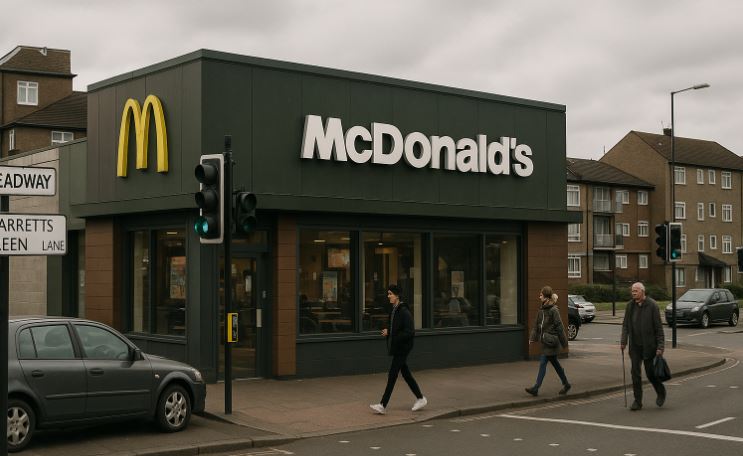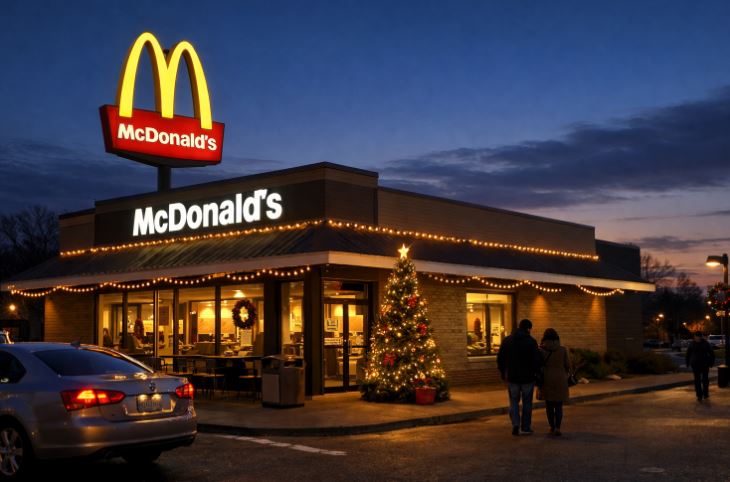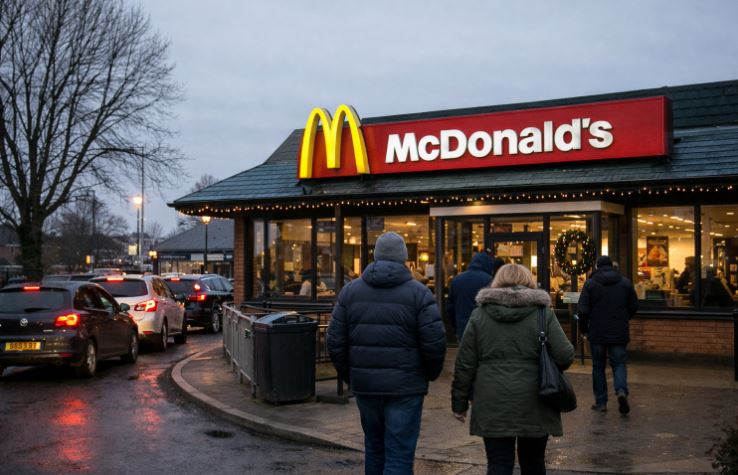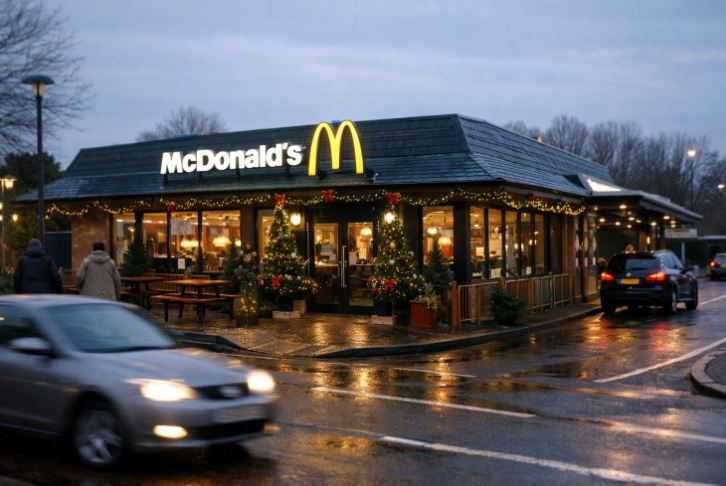Birmingham City Council is selling a McDonald’s restaurant located at Meadway and Garretts Green Lane as part of its wider financial recovery strategy.
The council, facing a major budget crisis, cited “limited income growth potential” as the key reason for the disposal.
With the property tied to ground leases ending in 2030, officials believe selling the site now will generate a necessary capital receipt and reduce future financial risks associated with property vacancies and maintenance.
Why Is Birmingham City Council Selling a McDonald’s Restaurant?
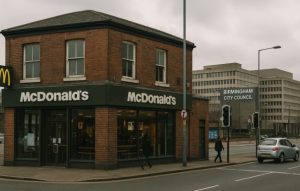
Birmingham City Council has recently revealed plans to sell a McDonald’s restaurant situated at the junction of Meadway and Garretts Green Lane. The announcement has raised questions about the reasons behind this decision, particularly as McDonald’s locations are typically considered stable commercial assets. However, the council has made its position clear, stating that the site “offers limited income growth potential.”
The Labour-controlled authority, currently facing an unprecedented financial crisis, has been actively selling off several of its assets, including properties and parcels of land.
This McDonald’s sale forms part of a wider recovery strategy designed to stabilise the council’s financial position and reduce mounting deficits.
What’s Behind Birmingham City Council’s Financial Crisis?
The financial struggles of Birmingham City Council have been well documented. The council declared effective bankruptcy in 2023 after identifying a significant budget shortfall and facing enormous equal pay liabilities. Since then, the local authority has been taking drastic steps to generate revenue.
This has involved a large-scale property disposal programme, including both public auctions and private sales.
Among the most notable of these transactions was the sale of the Bordesley Green “Wheels” site, which has been proposed as a potential new home for Birmingham City Football Club as part of the city’s ambitious Sports Quarter redevelopment project.
The sale of the McDonald’s site represents another chapter in the council’s broader strategy to liquidate non-essential or low-yielding assets in order to support its financial recovery efforts.
Is the McDonald’s on Council Land?
Yes. The McDonald’s in question occupies land that is owned by Birmingham City Council. The site is bound by four ground leases that are set to expire in September 2030. Essentially, while McDonald’s operates the restaurant as a tenant, the council holds the freehold ownership of the land beneath it.
Documents from recent council reports confirm that the McDonald’s tenant firm has now agreed to purchase the property. While the specific terms and figures associated with the sale have not been publicly disclosed, the report indicates that the transaction will provide the council with a “capital receipt” to help alleviate its financial difficulties.
Why Doesn’t the Council Retain the McDonald’s Property?
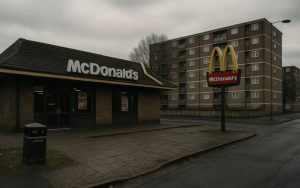
The council’s decision not to retain ownership of the McDonald’s site stems from several key factors. The most important of these is financial viability.
According to official documentation, the property offers “limited income growth potential,” meaning it does not produce significant revenue relative to its market value.
The council also noted that the property could become a liability once the current lease expires. Should the McDonald’s tenant vacate in 2030, the council might face costly vacancies, maintenance expenses, and lost income.
The report stated that the idea of keeping the site for potential redevelopment or alternative council use was “not supported as a viable consideration.”
Selling the freehold now allows the council to avoid these risks while benefiting from an immediate cash injection, which supports its ongoing recovery plans.
Who Will Benefit from the Sale of This McDonald’s?
While the council gains a much-needed capital receipt, the sale also benefits the McDonald’s tenant firm. By purchasing the freehold, McDonald’s gains complete control over the property, securing its long-term operational stability in Birmingham.
For the council, this sale represents one of several measures taken to restore financial order. Each asset disposal helps reduce borrowing needs and generate short-term liquidity. However, the long-term impact of losing income-generating assets remains a matter of debate among local residents and financial experts.
The broader community might also experience indirect effects. When local authorities sell assets, it can influence the landscape of public ownership, reducing the pool of properties available for civic or redevelopment projects in the future.
Is This Part of a Bigger Strategy for Birmingham?
Yes, the sale of this McDonald’s is part of a much larger and ongoing strategy by Birmingham City Council.
The local authority has been actively reviewing its investment portfolio to identify assets that offer limited income potential or are not essential to the council’s operations.
Recent and upcoming sales include the Gazette Building and Court Chambers in the city centre. Combined, these disposals have raised substantial funds that are critical to the council’s financial recovery programme.
The council’s asset disposal strategy is also aligned with its efforts to streamline operations and prioritise essential services. As part of this plan, properties that generate modest or declining returns are being sold to focus resources on high-value or high-need areas.
What Could Happen Next for McDonald’s in Birmingham?
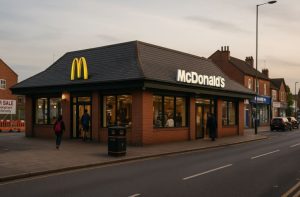
Following the sale, McDonald’s will own the freehold to the Meadway and Garretts Green Lane site outright. This could give the company greater flexibility to manage the property, potentially allowing for refurbishments, expansions, or modernisations in the future.
From a business perspective, ownership ensures long-term stability. McDonald’s can continue operations without concerns about lease renewals or rent adjustments.
For the wider city, however, this transaction underscores a shifting trend, where public land once held by local authorities is increasingly moving into private hands.
While this supports short-term fiscal stability, it may limit public influence over how key commercial sites are used or redeveloped in years to come.
Conclusion
The decision to sell the McDonald’s in Birmingham at Meadway and Garretts Green Lane symbolises a broader struggle faced by Birmingham City Council.
Caught between the need to recover financially and the desire to retain valuable public assets, the council has chosen to liquidate one of its lower-yielding properties to generate immediate capital.
While this decision brings short-term relief, it also highlights the challenges of balancing fiscal responsibility with long-term community interests. For McDonald’s, the sale provides an opportunity for greater independence and investment potential in the Birmingham market.
As the council continues its property disposal programme, residents and local businesses alike will be watching closely to see how these measures shape the city’s financial recovery, and what it means for the future of publicly held land in Birmingham.
FAQs
Why is Birmingham City Council selling assets like McDonald’s?
Birmingham City Council is selling assets to raise funds and stabilise its finances after years of financial strain and budget shortfalls.
What makes the Meadway and Garretts Green McDonald’s location significant?
It sits on council-owned land and is one of several commercial properties identified for disposal to support the city’s recovery.
Will the McDonald’s in Birmingham close down?
No, there are no plans for closure. The site is being sold to the McDonald’s tenant company, ensuring continued operations.
How will this property sale help the council’s financial position?
The sale provides an immediate capital receipt that will be used to address the council’s financial deficit.
Who is buying the McDonald’s property?
The property is being purchased by the existing tenant company operating the McDonald’s.
Is this kind of council property disposal common in the UK?
Yes. Many UK councils have been selling underperforming or non-essential assets to manage financial pressures and generate capital.

